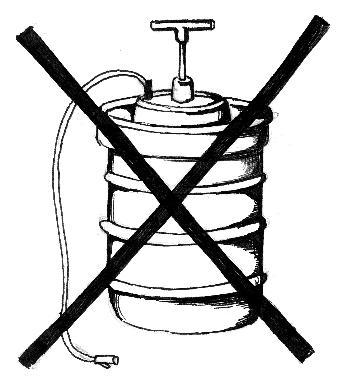
News
HMS Is Facing a Deficit. Under Trump, Some Fear It May Get Worse.

News
Cambridge Police Respond to Three Armed Robberies Over Holiday Weekend

News
What’s Next for Harvard’s Legacy of Slavery Initiative?

News
MassDOT Adds Unpopular Train Layover to Allston I-90 Project in Sudden Reversal

News
Denied Winter Campus Housing, International Students Scramble to Find Alternative Options
University Ban on Kegs at Tailgates Laughable
Letter to the Editors

To the editors:
I am sure I was not the only one to have a good laugh at the administration’s galactically stupid decision to ban kegs at all sporting events (News, “University Bans Kegs from All Sporting Events,” Oct. 8).
The rationale for this—what Harvard administrators described as an attempt to “minimize the consumption of alcohol”—is precisely the opposite effect the policy will have. Rather than limiting drinking to beer in large quantities, as kegs permitted, the policy creates a great invitation for students to diversify their drinking possibilities. Why not make a “punch” or “cider” with a few handles of vodka, or simply carry around a flask to assure that, if kegs aren’t allowed, at least you can get drunk? Even more comical is the administration’s failure to see beyond the initial effect of the policy. Kegs might not make their way into the tailgates (as much as in previous years) but the number of cans, cups and bottles will grow astronomically. While the administration might be happy about the change, the operations and field maintenance workers will, no doubt, be cursing the decision after each game.
Most amusing, however, is the confident analysis of Harvard social psychologist Henry Weschler, a lecturer at the Harvard School of Public Health. His take on the policy is: “While a no keg policy is certainly not going to stop all drinking, it will slow down the amount of alcohol consumed.” Dr. Hank, I beg to differ. It doesn’t take a social psychologist to know that banning one method of alcohol consumption does not prevent students from turning to other sources for their buzz. Harvard students are, if nothing else, resourceful when it comes to procuring alcohol. More importantly, anyone who has attended a tailgate knows that alcohol consumption flows at a steady rate, and banning kegs only changes the receptacle in which the alcohol is stored, rather than the rate at which it is consumed. I hope Dr. Weschler takes the time to conduct field research by attending the upcoming Harvard-Yale game. He might leave with a different hypothesis (and, if he’s lucky, a good buzz).
Gregory D. Henning ’02
Charlottesville, Va.
Oct. 8, 2002
Want to keep up with breaking news? Subscribe to our email newsletter.
